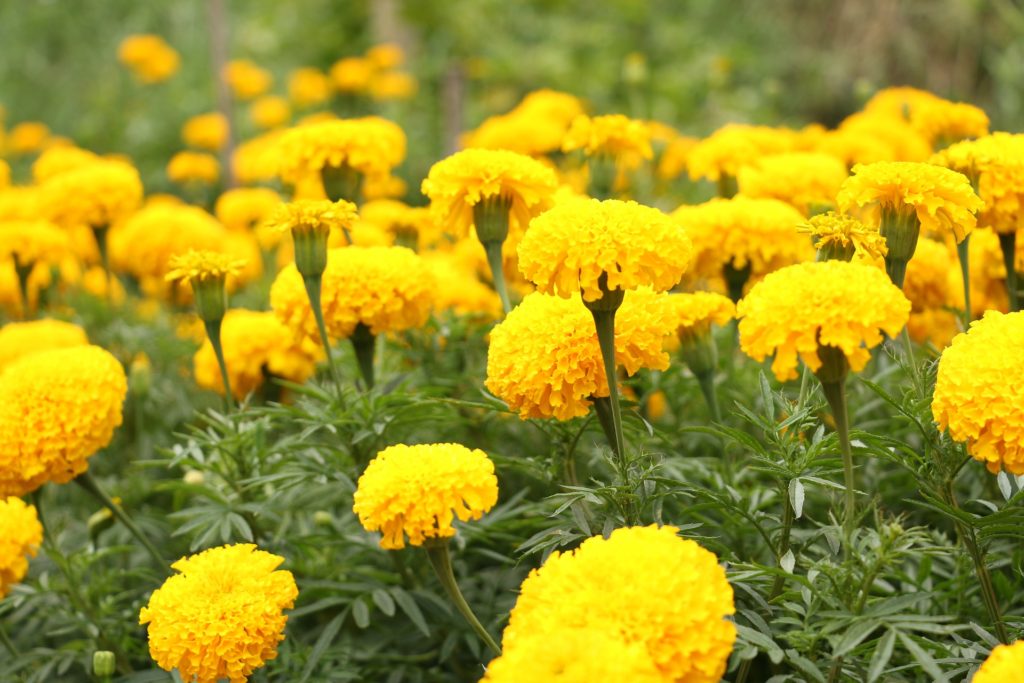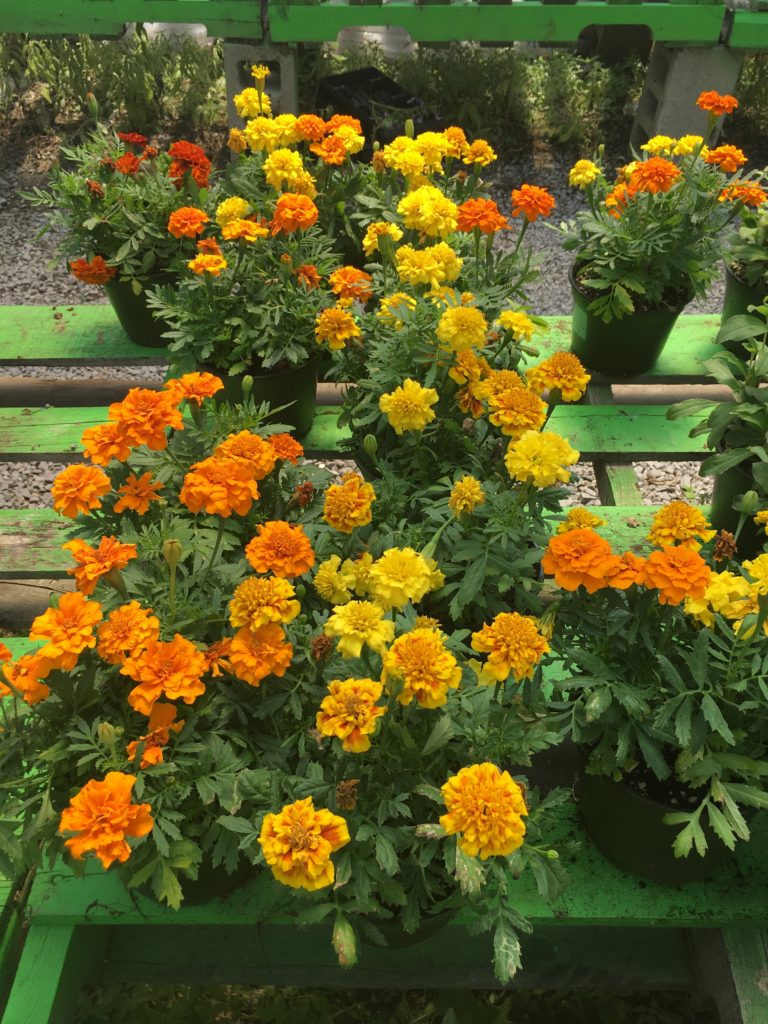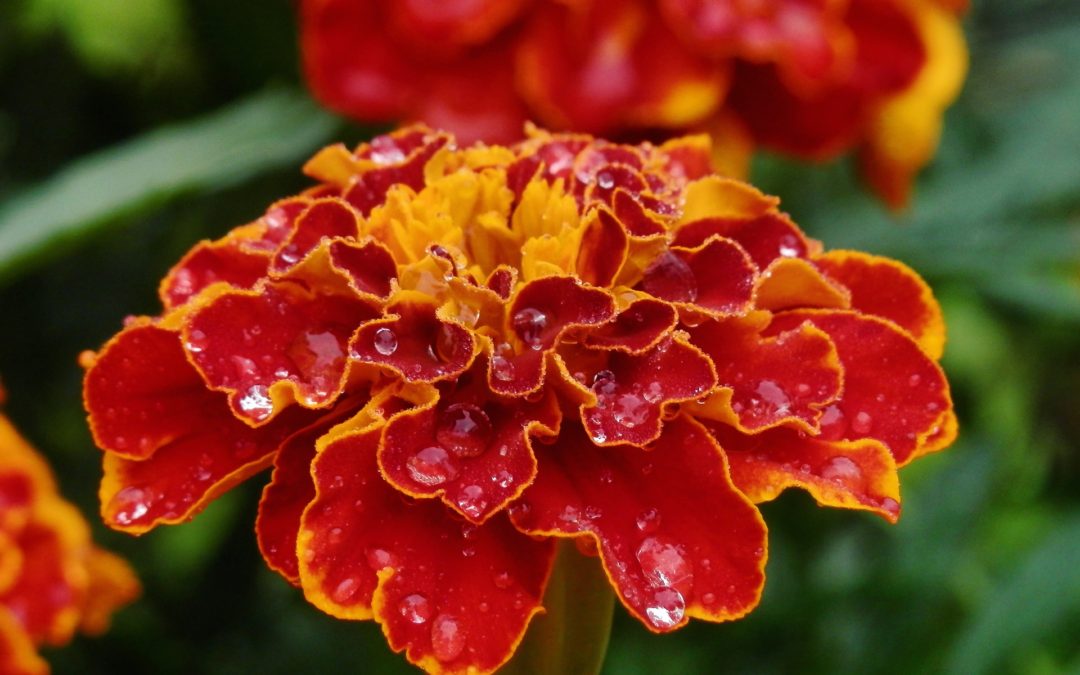Growing up with marigolds
Marigolds – every garden’s friend! White, yellow, orange, large and small – Marigolds are found in gardens throughout the world. Marigolds come from the sunflower family, genus Tagetes, and are known as a hardy, beautiful and easy to grow addition to one’s flower garden. When I was a child, my father always ordered seeds from the Burpee Seed Company, and then would plant marigold seeds surrounding the pool fence in our backyard. They were easy to grow, grew quickly and each year I searched for an elusive white marigold plant as Burpee Seed Company ran a contest – offering $10,000 for a true white marigold. Unfortunately my family never won! Our marigolds were always tall, bright yellow plants we grew from seed.

How to grow marigolds
Most backyard gardeners think in terms of the short 4 – 8 inch yellow or orange marigolds for the front of garden borders, or the taller varieties that are often used along fences or as a tall background for flower gardens. The short, frilly variety are commonly known as French marigolds but they are not French, rather most come from Mexico! Marigolds are fairly easy to grow from seed, and if you decide to grow your marigolds from seed, you need to begin them indoors in April or May (approximately two months before the last frost). When ready to transplant to your garden, plant your marigold seedlings in sandy soil or in a potting medium and avoid planting them on a hot day. Once you plant them, only water at the base of the plant – avoid watering the leaves or blooms. If you prefer not to grow them from seed, marigolds are available at your local garden center. Marigolds will bloom all summer and fall – providing excellent color for your garden. Fertilizing is not necessary. Although you don’t need to deadhead marigolds, you can encourage fuller growth by pinching off the dead blossoms. An added benefit of marigolds in your garden is their ability to ward off nematodes, and other garden pests – ranging from aphids to beetles. Some folks believe the odor of marigolds will also discourage rabbits from entering your flower garden.

I have personally had great luck with healthy marigolds, however they are susceptible to mites. Just be aware that you may need to use a pesticide, but I have personally never needed to use one for my marigolds. Spider mites can be washed right off the plants with a soapy water mixture. .
Marigolds are used in cosmetics, in salads, and in dried flower arrangements. They are wonderful additions to any gardens and will continue to bloom throughout the summer and fall until the first frost.



Recent Comments